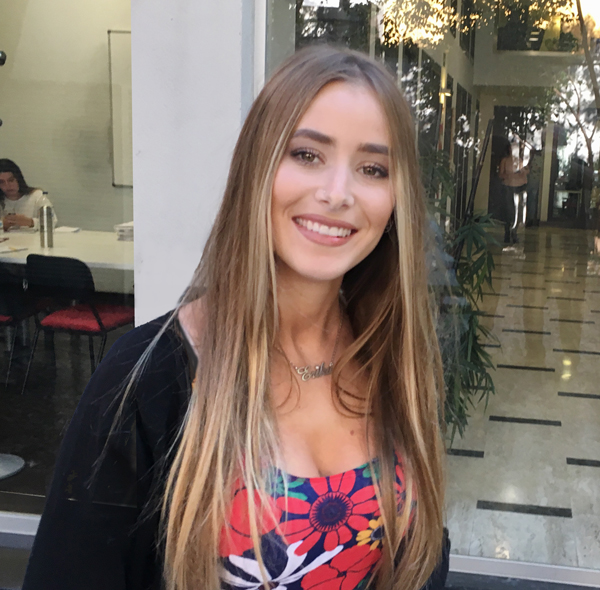 Certain greetings are unfamiliar and some references sail over your head. Body language can be difficult to read and eye contact varies among students from Asia, Europe and the two Americas.
Certain greetings are unfamiliar and some references sail over your head. Body language can be difficult to read and eye contact varies among students from Asia, Europe and the two Americas.
And you’ll discover another difference, one that’s less about country-of-origin and more about the territory that separates one generation from another. Attending an international language program is a visa that lets you slip across the border and explore the world of the young.
Based on our placement scores Erika Sciddurlo and I ended up in the same Spanish discussion groups for 25 hours a week over five weeks.
The kid’s a workhorse. She never seems to fade — you should see her notes. Erika comes to meetings as prepared as any suit I’ve worked with the corporate world. She happens to hail from the fashion center of Milan, and it shows.
She first surprised her parents by being born when her mother was forty eight years old, and then again by being the first in her family to attend college in pursuit of a career.
Our group discussions showed a wariness of multinationals, concentration of power, weapon sales and religious extremes. Young people are relaxed about race and gender and styles of families. Erika imagines living with a partner, having a child and then getting married — in that order.
The worldwide crash of 2008 left these new professionals guarded about the future. They’re studying Spanish knowing that multilingual skills will be essential in a global economy.
Their generation is about to inherit a to-do list with serious challenges (some my generation has punted on). Judging from my friends in Room 214 on Carrer de Mallorca in Barcelona, they’re more than up to the job.![]()

harry wilson
if you’re doing the writing,
Pat,
why in the name of reason did you apply for
a job in art at Leo Burnett ?
Harry
harry wilson
read above